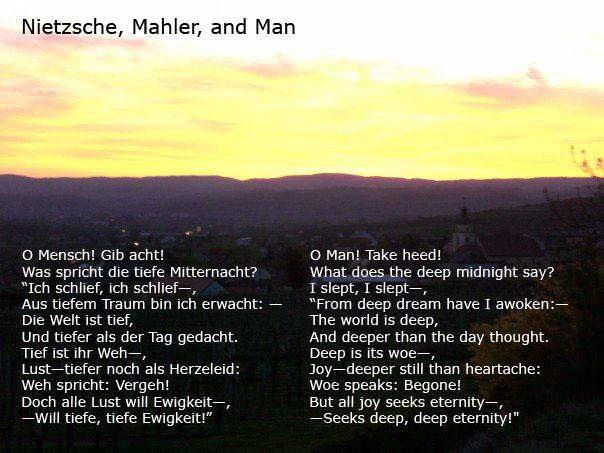The fourth movement of the Third Symphony, set for mezzo-soprano, is the only song of the four that is not a Wunderhorn setting. Instead, it is an interpretation of Friedrich Nietzsche's "Midnight Song," from Also Sprach Zarathustra. By choosing this text, Mahler makes a distinct statement about his humanistic philosophy. Though Zarathustra speaks of the deep pains of the world, he still seeks eternity. Mahler took this to mean eternity as redemption. That is the thing for which joy aims (Solvik-Olsen 1990, 239).
Man is therefore like the flowers and animals in that all lay in desperate need of redemption. But unlike them, Man can hope to reach it. In Mahler's creation order, Man has broken from nature and is but one step from the angels and two from the God of love.
This is a far more encompassing and compassionate view than Wagner's restrictive one. Mankind is not defined by its heroic character, stature, or heritage, but rather by its shared capacity for redemption. This was the philosophy Mahler injected into his Third Symphony. Here was a nation for all humans, animals, and even plants--one that respected life always, but recognized its often contradictory and violent nature.
